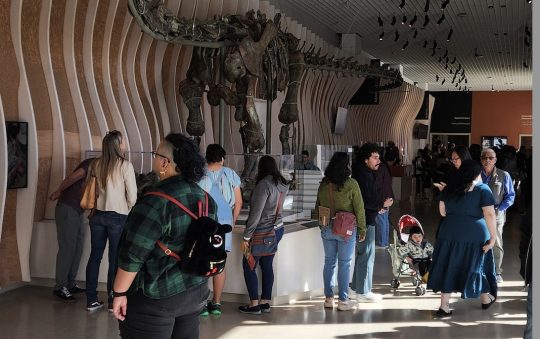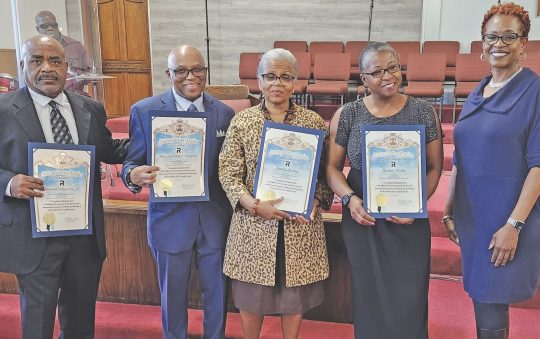
It’s not common to see an organization reach 100 years of service. It’s even less common to see an organization go above and beyond in being a solution to mental health issues for underrepresented youth of color. According to Wellnest President & CEO Charlene Dimas-Peinado that is exactly what’s been happening at Wellnest L.A. for the past 100 years.
“It is truly an honor to serve an organization that not only has achieved this monumental milestone of celebrating 100 years of serving children, families and community, but also an organization celebrated for its pioneering and progressive approach to mental health services for children,” said Dimas-Peinado.
She holds a Master of Leadership from University of Southern California, and a Master of Social Work from California State University, Long Beach. In 2023 and 2024, she was selected by Women We Admire as The Top 50 Women Leaders in Los Angeles and by the Los Angeles Business Journal as a Leader of Influence: Nonprofit and Philanthropy. In March, she was honored by L.A County Supervisor Hilda L. Solis on International Women’s Day.
Dimas-Peinado joined Wellnest in August of 2016. Utilizing 30 years of experience in behavioral health and non-profit organizations, she is the first Latina President & CEO of Wellnest since its founding in 1924 and providing overall leadership and a strategic direction as it celebrates one hundred years of community service.
“We are a comprehensive, trauma informed, mental health agency and housing service for children from birth to age 25 that utilizes various researched trauma informed evidence-based practices,” said Dimas-Peinado.
Formerly known as the Los Angeles Child Guidance Clinic, Wellnest was established as a demonstration clinic by the Commonwealth Fund of New York as a nationwide effort to have a greater understanding for the prevention of juvenile delinquency and emotional difficulties in children and their families to improve the mental health conditions of America’s children.
“As such, it was the first Child Guidance Clinic west of the Rockies and today continues as the oldest mental health clinic for children of its kind in Los Angeles,” said Dimas-Peinado.” “The conversation about children mental health was just beginning to happen in 1924, psychotherapy wasn’t even really heard of as it was still in its infancy. Child psychology and child psychiatry were then developing disciplines, and they came to play an increasingly significant role in clinical services.” During this time, there was a tremendous amount of stigma around mental health in general… you simply did not talk about emotional difficulties or challenges.”
She shared that back then, most all clients were white and paid for services. The organization service area was middle and upper class. Over time, the demographics would change with the community becoming predominantly African American in the 1960’s and later, a growing Latino, Asian and American Indian community. People of color did not always receive adequate mental health services but according to Dimas-Peinado, one doctor changed that.
“We had one of the first African American psychiatrist and his name was Dr. Quinton James who was a resident at USC. Dr. James conducted a study to demonstrate that people of color could benefit from participation in psychotherapy. At that time, the Black and Latino community experiencing mental health conditions were often hospitalized and medicated, they were not deemed as appropriate clients for psychotherapy,” said Dimas-Peinado.
She continued, “Dr. James gave many seminars at various medical and psychiatric locations to demonstrate the effectiveness of psychotherapy in treating trauma in children and families which helped to change that mindset of professionals in the field of mental health working in communities of color.
Dimas-Peinado shared that Wellnest has stood the test of time and is still doing the same in addressing mental health issues today.
“Mental health knows no boundaries – it affects people of all ages, backgrounds, and communities. At Wellnest, we are dedicated to breaking down the barriers to mental health care and ensuring that everyone has access to the support they need.” said Dimas-Peinado.
Wellnest stayed in the community, committed to serving the population when other mental health agencies moved on to other areas. Reflecting on their upcoming centennial celebration, Dimas-Peinado shared that today, we continue to embrace the original vision of its founders to continue to innovate mental health and wellness services for children and their families.
“We remain committed to providing the most current and relevant research, evidence-based practice models available, meeting the current needs of our children and families and ensuring that all of our services are culturally sensitive and competent…we will not turn any child away,” said Dimas-Peinado.
Since joining Wellnest she shared the operating budget has more than doubled to serve more children and significantly increased its asset portfolio, ensuring Wellnest’s sustainability for the next century of service. The organization has also expanded their geographic footprint into Downtown LA and East Los Angeles. They’ve also expanded their core services to include interim and permanent supportive housing for transition age youth, ages 18 to 25, addressing housing as a fundamental need for success.
“Wellnest completed its first state-of-the-art permanent supportive housing development two years ago and has two more developments in the pipeline,” said Dimas-Peinado.
Dimas-Peinado said that it’s an honor to lead Wellnest, an organization celebrated for its pioneering and progressive approach to mental health services for children.
“I would like to say thank you to our community for always being there to support Wellnest providing guidance, philanthropic support and even critical feedback which we embraced fully,” said Dimas-Peinado. “To our donors, community leaders, public and private business partners, and private foundations that have been there for a century supporting us to achieve our mission, thank you! It is an honor to share this momentous occasion with our community.”
She continued, “100 years ago, there was a call to action by subject matter experts and community members. This is a call to action, once again, for mental health and housing services. The need for mental health and housing services continues to grow exponentially for children and young adults.”
“We have so much more work to do so let’s continue to ensure that our children are safe, loved, physically and emotionally healthy. Let’s collectively continue to build a legacy of hope, healing and opportunity for the generations to come.”
For more information on Wellnest, visit www.wellnestla.org







